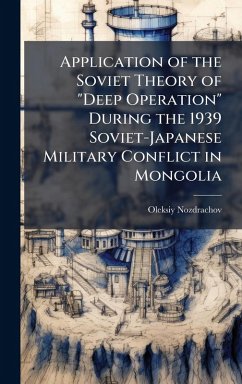
The Soviet Invasion of Finland, 1939-40

PAYBACK Punkte
38 °P sammeln!
This is the first-ever concerted effort to use Russian archival and previously classified secondary sources to document the experience of the Red Army in the conflict with Finland. Van Dyke examines the diplomatic, organisational and social aspects of Soviet's 'strategic culture' by first exploring the Leninist interpretation of violence in international relations, and how this legacy influenced Stalin in his use of diplomacy and threat of force to enhance the Soviet Union's 'forward defence' and to address the Baltic Problem in 1939. He documents the Red Army's poor battlefield performances and looks at how it relearnt the techniques lost during Stalin's purge in the late 1930s. The final section of the book examines the Soviet high command's post-war evaluation of the lessons learned, the debates over the re-professionalisation of the officer corps and the effectiveness of the 'unified military doctrine'. This trail-blazing study should become the standard reference on the Soviet-Finnish War for many yearsto come.
Western accounts of the Soviet-Finnish war have been reliant on Western sources. Using Russian archival and previously classified secondary sources to document the experience of the Red Army in conflict with Finland, Carl Van Dyke offers a reassessment of the conflict.














